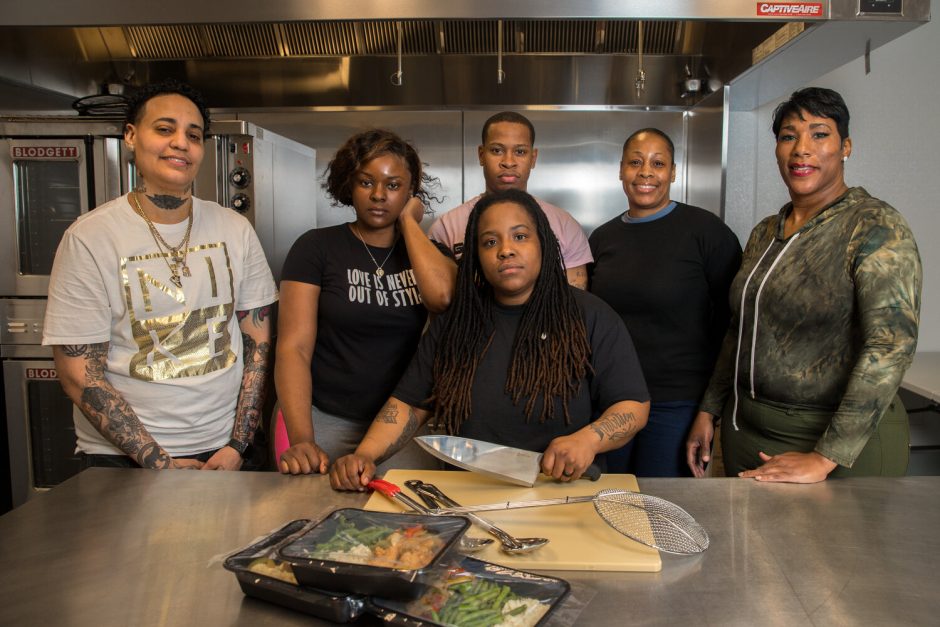With multiple crises – Covid-19, a changing economy, climate change, and racial and social injustices – coming to a head, the US is at a crossroads, with a divisive and chaotic presidential election under way and society becoming increasingly polarised.
This uneasy backdrop sees the co-op movement – with its promise of a more just, sustainable and equitable way to run the world – under pressure to prove its effectiveness. And the issues facing the world ran through this year’s Co-op Impact conference – a week-long gathering of the US movement organised by sector body NCBA Clusa.
There was particular focus on how co-ops could build “diverse, equitable and inclusive economy”. The format for the event – like most other conferences this year, forced online by Covid-19 – brought more scope for participation. Opening the event, NCBA Clusa’s CEO and president Doug O’Brien said the record 922 registrants “from around the world … sets a new bar for greater accessibility and participation”; the format also allowed easy access to workshops and for dialogue with the speakers by posting questions.

Erbin Crowell, chair of NCBA Clusa, said: “In this moment as we face twin pandemics of Covid-19 and the challenges of institutional racism and inequality, co-operatives have never been as relevant.”
He said confronting these issues was crucial to the movement’s values and principles and to the success of the co-op model.
“We have a responsibility to make sure that more people understand and have access to the power of co-operation as we work to rebuild our communities.”
Related: Inductees named for the 2020 Cooperative Hall of Fame
Co-ops also have a role to play in facing unprecedented challenges from Covid-19, said Mr O’Brien, with the number of active business owners in the US dropping by 3.3 million – 22% – between February and April; African American, Latinx and Asian businesses all had higher than average losses. He said it was time to “leverage the power of co-ops to meet this moment”.
Central to NCBA Clusa’s efforts is a new report presented at the conference; drawn up by Washington DC-based thinktank the Urban Institute, it offers policy strategies to jumpstart co-op development and address contemporary issues – particularly the economic and racial disparities in the US.
Brett Theodos, senior fellow at the Urban Institute, said federal, state and local policy often leave co-ops at a disadvantage. This needs to change so more co-ops can be grown in underserved markets; there is a need to convert more existing businesses to co-ops, to prevent demutualisations and to prevent co-op failures; and to grow the size and market share of co-ops.
This requires enabling legislation, regulatory reform, financial support, technical assistance, and preferential procurement policies, he said.
Co-ops can try to drive this change by telling “new story” that “resonates with policymakers and “contextualises co-ops within the current political environment”, said Mr Theodos. The co-op movement has a wealth of member data to help them do this; and co-ops can strengthen their case by working together and with non co-ops.
“Victories are possible through coalition and support,” he said.
Co-operators are already driving such efforts. Monica Armster Rainge, an agricultural lawyer from the Federation of Southern Co-operatives, talked about an advocacy programme aimed at ending centuries of inequities and poverties in the Deep South – where there are states which have “some of the weakest co-op laws”.
“As the largest black-owned organisation and association of co-operatives, we are challenged with assisting some of the poorest communities across the south,” she said.
She said with a strong agrarian economy – “land rich and cash poor” – the south offers scope for co-ops to develop untapped resources. A roundtable by the Federation found the key challenge was how to tap into the under-utilised land owned by African Americans. Much of that property has been passed on without a will, making it ineligible for many government support programmes and difficult to develop.
As a result of that roundtable the FSC led an advocacy effort in 2018 to drive legislation for a new fund which will allow co-ops to clear those land titles and develop the property, she said. “We are excited about … the fact we’ve started to have some serious discussion about how we can start to move the needle for many of these landowners across the south,” she said.
The conference heard from grassroots voices working with communities hit hard by the crises facing the country. They included Camille Kerr, founder and principal of Upside Down Consulting; she works to promote a democratic economy with black liberation, immigrant rights, food justice, and labour organisations.

She helped found ChiFresh Kitchen, a Chicago worker co-operative active in the food sector which is primarily owned by formerly incarcerated black women to offering them “a liberating environment and economic security”.
Covid-19 has left the food industry “resilient and needed” which has been good for ChiFresh but brought “devastating impacts” from loss of employment and difficulty accessing benefits to gig economy workers. Ms Kerr’s response was to invest in and raise funds for a black worker-owned business which is now supplying 2,000 meals a week to address food insecurity.
Keynote speakers brought more examples of co-ops in action. Thaleon Tremain, chief executive of Pachamama Coffee Cooperative, looked at is work conecting consumers with producers. Pachamama is the first direct-to-consumer coffee roaster in North America and is wholly owned and governed by thousands of smallholder farmers in African and Latin America.
“We get to decide which version of the future we want to support,” he said.
But in another keynote, co-op historian Jessica Gordon-Nembhard warned against complacency and the notion that “co-ops can’t be racist,” noting that the movement’s fundamental grounding in open membership and democratic member control are not enough to offset the cumulative effects of structural and institutional racism.
“It’s not good enough to be diverse; it’s not even good enough to be inclusive. We need to deliberately promote and practice racial equity,” she said, arguing there is a danger of lapsing into “tokenism” instead of ensuring that “multiple voices are heard”.
Related: Jessica Gordon-Nembhard speaks to Co-op News about past lessons for economic empowerment
Racism can manifest itself in overt, invisible and unintentional ways, she explained, adding that co-ops need to counter this by updating their communication materials. Mainstream co-op materials make no mention of non white co-op history and need to feature more people of colour.
“Community and organisation matter,” she added. “Communities are our members – our members come from communities, communities donate to co-ops, communities buy from co-ops and communities defend co-ops.”
Her keynote was followed by an interactive town hall and panel discussion led by National Cooperative Bank’s John Holdsclaw IV on how co-ops can begin to take concrete steps toward a more diverse, equitable and inclusive economy.
Related: Meet … John Holdsclaw
To help delegates out these lessons into action there was a session led by Michelle Padilla and Lisa Cavanaugh – members of the leadership team at Farm Credit Services – on how co-operators can identify their own privilege and work more effectively as allies for those without such advantages.
And in another session Terence Courtney from the Federation of Southern Cooperatives said the US was witnessing a historic movement for racial justice.
“If co-ops are part of this discourse it can become a powerful demand,” he said.
- Impact 2020 sessions are available on demand to conference registrants throughout October. Delegates who missed a session, can log back in and catch up. If you did not attend you can register here at a reduced rate and view the full programme.